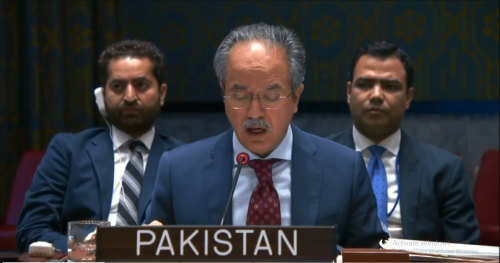At least 28 people were killed and over 250 injured on Friday when clashes broke out in northern India after a court convicted a controversial religious leader of raping two of his followers, sparking fury among tens of thousands of supporters who had gathered to await the verdict.
Authorities rushed hundreds of troops to the city of Panchkula after followers of guru Ram Rahim Singh torched cars, threw rocks and attacked television vans, breaking their windows and overturning one.
More than 100,000 were estimated to have gone to the city in Haryana state, where India's federal investigations agency had set up a special court to rule on the charge that he had raped two female devotees.
“The situation is tense but under control. The crowds have been dispersed at most places,” Police deputy superintendent Isham Singh told AFP by phone.
“The crowd outside the court was asked to vacate but they turned violent leading to police action.” Ram Rahim Singh has a vast following in Haryana, where he runs a spiritual movement that claims to have millions of devotees around the world.
Authorities imposed an indefinite curfew in Panchkula, where mobile internet services had earlier been cut off.
“I don't understand what the government and the police are doing. We have been feeling unsafe since yesterday and all our fears came true today,” local resident Sandeep Singh told AFP.
“Why did the police not act swiftly and forcefully against these followers?” As news of Singh's conviction spread there were reports of violence in the neighbouring state of Punjab and on the outskirts of the capital Delhi, which borders Haryana.
“Two train stations have been burnt in Punjab and two empty (train) coaches have been set on fire in Delhi's Anand Vihar station,” said Neeraj Sharma, a spokesman for Indian Railways.
Hundreds of trains passing through Punjab and Haryana have been cancelled, he said.
Police used water cannon in an attempt to disperse the crowd. More than 15,000 paramilitary troops and police officers, some on horseback, were deployed in the town of Panchkula.
Mobs set fire to government buildings, and attacked police and TV journalists, smashing the windshields of media vans and breaking broadcast equipment.
Panchkula administrators had feared that a guilty verdict would trigger violence among the tens of thousands of followers who had camped overnight awaiting the verdict.
Angry mobs also attacked police in the town of Sirsa, where the guru's ashram is located, according to a local police control room.
Prosecutor Harinder Pal Singh Verma told AFP the guru was “calm after the verdict was passed” and had been flown by helicopter to another city in Haryana. He will be sentenced on August 28.
The guru's Dera Sacha Sauda sect claims to have some 50 million followers and campaigns for vegetarianism and against drug addiction. It has also taken up social causes such as organising the weddings of poor couples.
Such sects have huge followings in India. It's not unusual for leaders to have small, heavily armed private militias protecting them.
When the guru left his ashram in Sirsa early Friday for the hearing, he was accompanied by a 100-vehicle convoy.
Police had erected heavy metal barricades topped with barbed wire along main roads in the town, a quiet residential suburb of Chandigarh, which is the common capital of Haryana and Punjab states.
The case was tried in a special court run by India's top agency, the Central Bureau of Investigation. Such cases have prompted public violence in the past.
Clashes in 2007 between the Dera Sacha Sauda followers and members of the Sikh faith left at least three people dead in north India.
In 2014, six people were killed when followers of another religious leader, guru Rampal, fought pitched battles with police who were attempting to arrest him for contempt of court after he repeatedly failed to appear in court in connection with a murder trial.
In a televised appeal on Thursday, Ram Rahim Singh had asked his supporters not to resort to violence, but some said they would not tolerate a verdict that went against their leader.
“I consider guru-ji to be only next to God,” farmer Malkit Singh said as he squatted on the ground in a Panchkula park, saying Ram Rahim Singh had cured him of a decade-long addiction to drugs. “There is a God above,” he said. “Our guru-ji follows the path of truth.”
















































